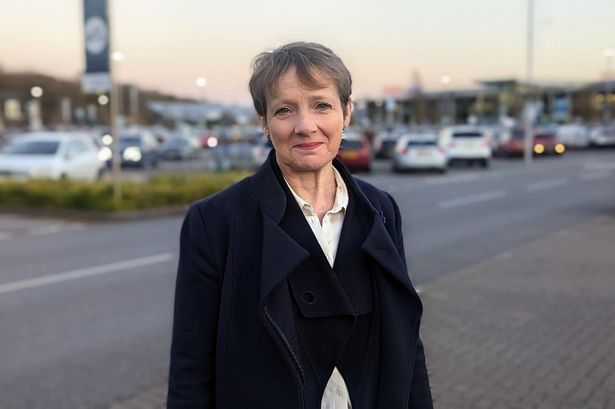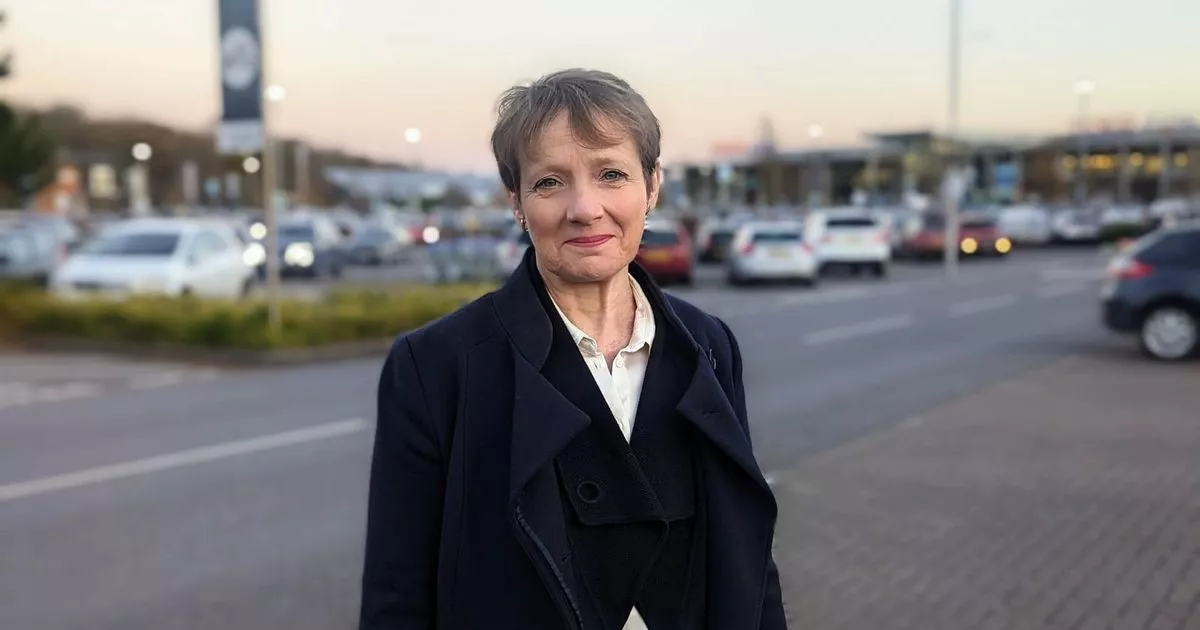But there are signs that reporting of violence against women and girls is now increasing Clare Moody, the police and crime commissioner for Avon and Somerset, spoke in parliament on Tuesday, June 17(Image: Labour Party)
Clare Moody, the police and crime commissioner for Avon and Somerset, spoke in parliament on Tuesday, June 17(Image: Labour Party)
A “massive under-reporting” of women reporting crimes like domestic violence and rapes is hampering Avon and Somerset Police’s work to tackle the problem. But the police and crime commissioner said there has recently been a huge rise in rape survivors coming forward.
A tiny fraction of rape cases end up in the police charging the perpetrator, but this proportion is slowing increasing. The police are now “doing a lot of work” to increase the confidence of victims, to encourage more women to report crimes, as well as intervening earlier.
Clare Moody, the Labour police and crime commissioner for Avon and Somerset, told MPs about the work happening locally to tackle violence against women and girls. She was speaking to the home affairs select committee on Tuesday, June 17.
She said: “We know there’s massive under-reporting. We know that we don’t know where all those victims and survivors are, because they haven’t told anyone. There’s a lot of work being done to try to increase the confidence of victims and survivors in the criminal justice system, so that we can increase the numbers of people who come forward.
“So for example, in Avon and Somerset we have had a 54 per cent increase in rape survivors coming forward. But that doesn’t mean that all of the women who have gone through that kind of experience are now somehow involved in the system and we know about them.”
Reporting crimes, even if no charges are brought, helps the police build a picture of how much of a problem there is, so they can allocate enough resources. However another issue with tackling violence against women and girls is funding. The government gives money to a range of organisations for different programmes, but there isn’t one central pot for the problem.
Without long-term investment in the area, the police are struggling to meet the growing demand. Short-term, one-off funding pots also hamper the police’s efforts. Another factor is that other types of crime, such as terrorism, often have a misogynistic element, so funding to tackle this can be used on violence against women too.
Ms Moody added: “Violence against women and girls is an underlying theme to other areas. Whatever the type of terrorism you’re looking at, you’ll find the theme underneath it, there will be misogyny underneath there somewhere as well.
“When you’re looking at prevention, for example, whether it’s far-right terrorism or Islamic-based terrorism, the perpetrators will have misogynistic attitudes as almost their starting point. So there are ways we can look at using funding from other areas and bringing that into VAWG.”
An example of preventative work that officers at Avon and Somerset Police are doing was highlighted in a recent BBC documentary. The Sex Detectives explores how police officers work with on-street sex workers in Bristol, identifying and protecting vulnerable children. Over 1,000 men caught picking up sex workers have been placed on a course, to prevent them reoffending.
The commissioner said: “There’s always this challenge around prevention. You’ve got to respond to the need. We’re trying to identify more survivors and bring more cases forward. But at the same time we’re trying to up that prevention provision as well, because you’re saving money in the longer term.
“But prevention work requires focus and attention. Some of that is around housing provision, but actually a lot is around focusing on the perpetrator and working across the criminal justice system. Some of that is around rehabilitation and some is around working with perpetrators before they get into the criminal justice system.”
Housing is a common problem with women fleeing domestic violence, who are often told to move out of their homes while the attacker can stay. But there is a dire lack of social housing across the country, and particularly in Bristol, with over 20,000 families on the waiting list.
Ms Moody added: “Can we just try to normalise a little bit more the idea that the victim-survivor stays in their home, and it’s the perpetrator who has to leave, rather than having to go into a refuge. We don’t need to just assume they [the victims] have to move themselves.”
Successful work in expanding how rapes are investigated by Avon and Somerset Police will soon be mirrored in tackling domestic violence too. The commissioner said she expects this will lead to a large rise in perpetrators, who the police will be working with in the near future.
